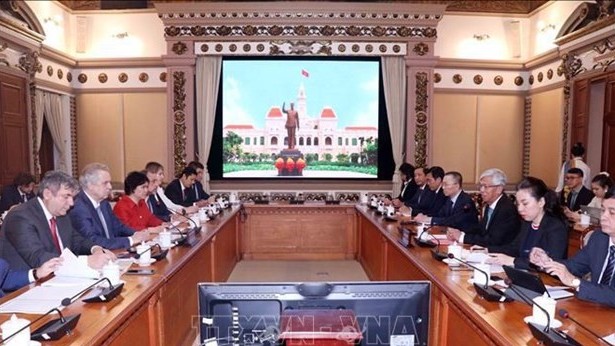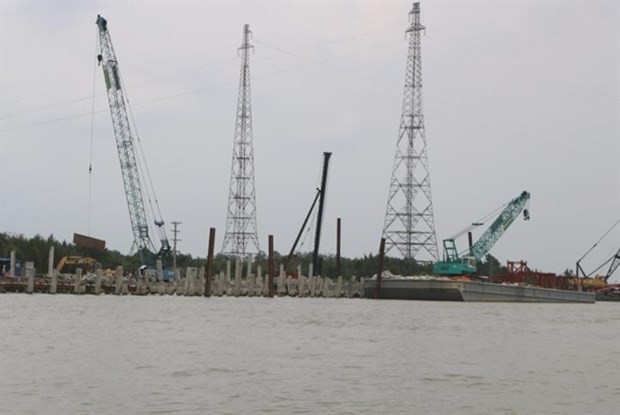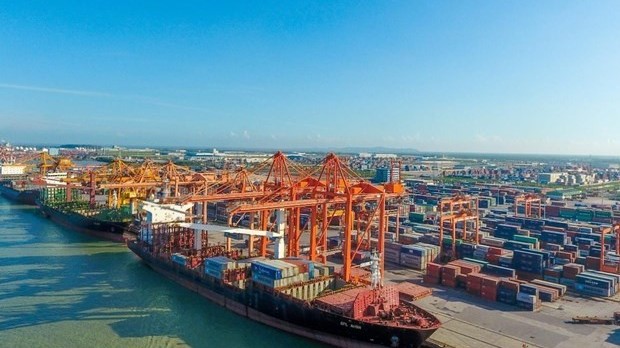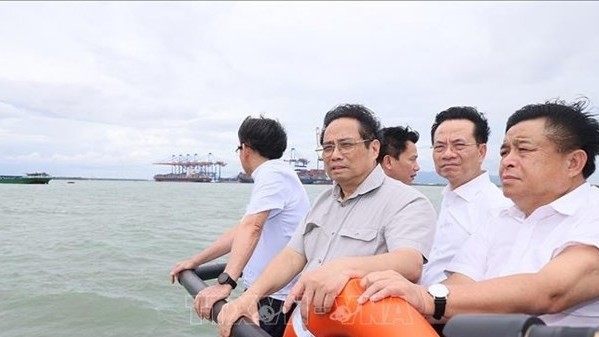
Ho Chi Minh City to build international transshipment port in Can Gio district
Latest
 |
| Ho Chi Minh City to build international transshipment port in Can Gio district: A coastal area in Ho Chi Minh City’s Can Gio district. (Photo: VNA) |
HCM City Chairman Mai stressed that the Can Gio international transshipment port project is not only meaningful for the benefits of the seaport but also enhances the competitive advantage of the Southeast region, creating more attractiveness for foreign direct investment (FDI) inflows.
Located in Thi Vai maritime channel, Can Gio has deep water, is not seriously affected by waves or winds, and is ideal for international container transshipment.
Along with natural and economic factors, the cooperation of large global shipping lines is also essential for success.
The city plans to carry out the project’s construction together with the Vietnam Maritime Corporation (VIMC) and Mediterranean Shipping Company (MSC) - the world's second-largest container shipping company.
VIMC and its subsidiary, Saigon Port, have joined with foreign partners to flesh out the details of cooperation, investment and operation.
Saigon Port and MSC have studied the proposed site of around 570 hectares with a main wharf of 7.2km and capacity to berth ships of up to 250,000 tonnes.
The project has a designed capacity of 15 million TEUs. The two sides are working hard with foreign partners to finalise plans for investment and operations.
By taking advantage of the deep water channel at the Can Gio estuary, construction of the port is expected to maximise the role of seaport group No. 4 comprising five ports in HCM City and the southern provinces of Dong Nai, Ba Ria - Vung Tau, Binh Duong and Long An.
“This project is a complement to the Cai Mep–Thi Vai seaport system, not a competition to weaken the existing seaport system,” Mai said.
It will use investment capital from domestic and foreign enterprises with high feasibility because the investor is one of the world's leading shipping carriers.
The city has been perfecting policies and institutions to create a driving force for the region’s development, bringing the region into a new stage of development and making a great contribution to the country’s industrialisation and modernisation process by 2045.
According to statistics from VIMC, in 2021, the volume of container goods passing through the country's ports, mainly in HCM City, Ba Ria-Vung Tau province and Hai Phong city, was 23.9 million TEU, but international transhipment was relatively low.
In 2015-2020, the volume of goods passing through HCM City's ports grew by an average of 7.3% a year, and it is expected to fall to 5% in 2021-2025.
In 2021, the volume was 164.19 million tonnes against a target of 116.9 million tonnes and even higher than the target for 2030 of 160 million tonnes.
The construction of container ports is imperative to meet the city’s trading needs.





















